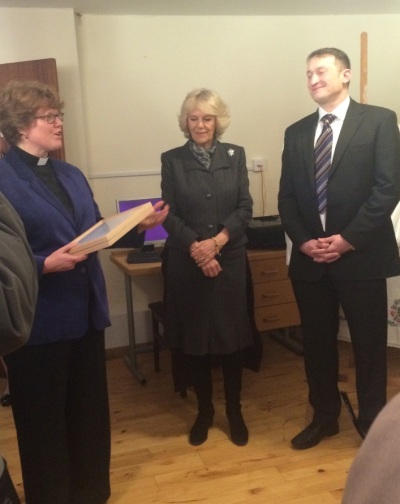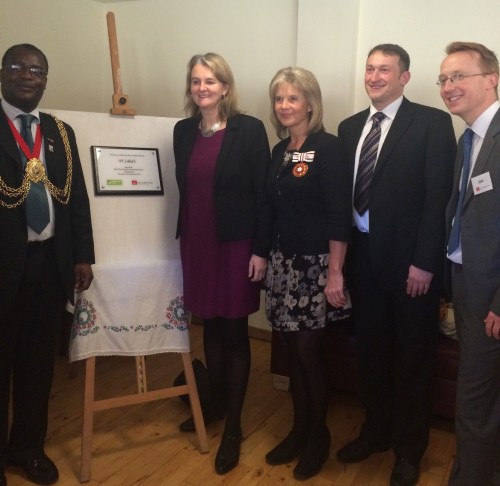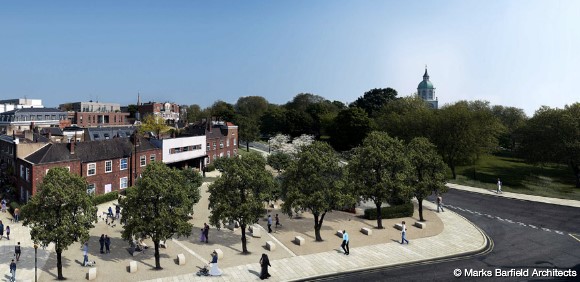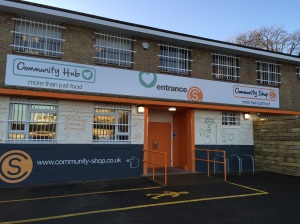Since 2010, local government has faced an unprecedented challenge. To me it seems like we talk about this all the time, but it’s also not clear that the message is getting across just how much pressure we are under.
Like when we’re asked why we’re no longer able to spend £95k on a free fireworks display while we’ve got to find £25m savings from Adult Social Care alone – that is, from some of our borough’s most vulnerable residents. It’s about priorities. But more on that later.
Local government has faced the largest cuts of any part of the public sector. In Lambeth, that has meant a 50% cut in our funding since 2010.
This would always be difficult, but it comes at a time when the policies of the Coalition government mean we are facing growing demand for our services.
Homelessness is rising, more households are living in debt, and wages are stagnating whilst the cost of living – especially for housing – is going up.
Meanwhile demographic changes are having their impact too. An increasingly ageing population is rapidly adding pressure to our health and social care systems. In the UK, between 2009/10 to 2013/14 the number of people aged over 65 and over 85 rose 10.1% and 8.6% respectively; but spending reduced by 13.4%.
Eric Pickles is always helpfully first in queue to offer us up ideas for savings, cavalierly offering up solutions to the problems caused by his own government.
He recently suggested councils use their reserves to plug the massive funding gaps we’re facing. In Lambeth this is just a simple impossibility. We have the 2nd lowest level of reserves in London. We’re not sitting on a huge pot of money, and to reduce our reserves further would be to put us at odds with advice from the Chartered Institute for Public Finance and Accountancy (CIPFA).
Another Pickles brainwave has been to level unnecessary rows with Lambeth over Lambeth Talk. Our total budget for the Communications team is £1 million. Whilst I recognise this is not an insignificant sum, Eric Pickles was recently found to have spent half of that just on his private limo alone. A recent survey of our residents found that, along with our website, many found Lambeth Talk a good way of finding out about council services and local decisions affecting them. And in these difficult times, there are going to be a lot of those. Forgive me, but I know which one I feel is more socially valuable.
And it’s not just about straight out opposition to the cuts; it’s also the fact that in Lambeth we have been disproportionately affected. Let me illustrate this.
Despite the fact that Lambeth is the 29th most deprived area in England, Lambeth has experienced the 13th highest cut per household in the country over the course of this Parliament and the 7th highest in London.
Lambeth faces a decrease of -5.46% in spending power, or -£306.38 per resident, over the course of this Parliament.
The mean average cut for all of England’s councils is £111.36. Lambeth has therefore experienced almost three times greater cuts as the mean average English council.
Meanwhile 17 Home Counties authorities will see an increase of over 2% in their spending power: all are Tory-run, with Reigate and Banstead seeing the biggest increase, at 2.92%.
The council of David Cameron’s constituency, West Oxfordshire District is gaining 0.66% in spending power in this settlement.
Overall across the country the ten most deprived local authorities in England will lose ten times the amount in spending power per household compared to the ten least deprived local authorities over the course of this Parliament.
Perhaps speaking about it terms of Lambeth Council’s funding doesn’t help illustrate the point enough. This isn’t money being taken away from the illusory Council coffers, its money being unfairly taken away from each and every person in Lambeth, whose local services we are being forced to do our best to protect.
So forgive us if we don’t sit back quietly and accept it. We’re going to use every opportunity to tell this government, and the next one, that this isn’t fair.
Personally, I’m also using every opportunity to contribute to the devolution debate. We need more power and money at a local level; bringing it closer to the real people it is ultimately all for.
We were elected by our residents to do the best for them and that’s what we’re trying to do. Our values of opportunity and fairness are real, and what we strive to uphold in everything we do to respond to this challenge.
To date, we’ve tried to respond as effectively as we can, with a clear focus on protecting frontline services for as long as possible. Those priorities I mentioned earlier.
We’ve already found £100m in savings. That’s meant working with other boroughs as well as streamlining all our operations. But be under no illusion that this hasn’t come without significant pain – we’ve had to lose over a quarter of our staff so far.
We’ve also pledged to bring back Lambeth Living back in house again so it can work more effectively and make more savings.
Often we get asked about Council Tax; either why we can’t make up the shortfall in our funding from it, or why we might need to put it up. Council Tax makes up only 27% of our income, but it is important because unlike other sources of income, it remains at our disposal.
Putting Council Tax up is not a decision we take lightly. But after 6 years of freezing it, of trying to keep our residents insulated from the pain – saving households on average over £200 – a raise is now simply a necessity.
The 1.99% rise we’re proposing, will, over 3 years, mean £5.6m fewer savings we need to make.
We also need to expand our potential sources of funding. We’re continually striving to attract inward investment and encourage new development – but not uncritically. We will always want to make sure it works for local people.
But overall what will get us through is our attitude. Yes there is huge unfairness in the 50% cut we’re facing. But that is our reality, and we need to change the equation to look at the 50% we do have to spend and how we can use it most effectively.
We’re rising to the challenge and finding new ways of doing things. We’re unlocking the capacity embedded in our communities, and we’re opening up to new partnerships with both the public and private sectors. We’re intervening early where we can, and pushing better integration where it makes sense to do so.
We have to meet the challenge the government has put in front of us, but we’re determined to do so in a way that is both ambitious and fair for all – in a way that, despite the climate, in the long term ends up delivering the best deal possible for our residents.
I will try to write further about some of the key themes from this year’s budget in the coming weeks:
- Unlocking community capacity to support our parks and libraries
- Our effective partnerships like the West Norwood Health and Leisure Centre and the Somerleyton Road development
- Our focus on early intervention, particularly in the early years to support some of our borough’s least well off families
- Bringing good investment into the area

 helped them on their way to opening the new 27-bed community at the St. Luke’s Hub. We also supported this by providing Emmaus and West London Mission with a contribution to the capital costs of redeveloping the site.
helped them on their way to opening the new 27-bed community at the St. Luke’s Hub. We also supported this by providing Emmaus and West London Mission with a contribution to the capital costs of redeveloping the site.

